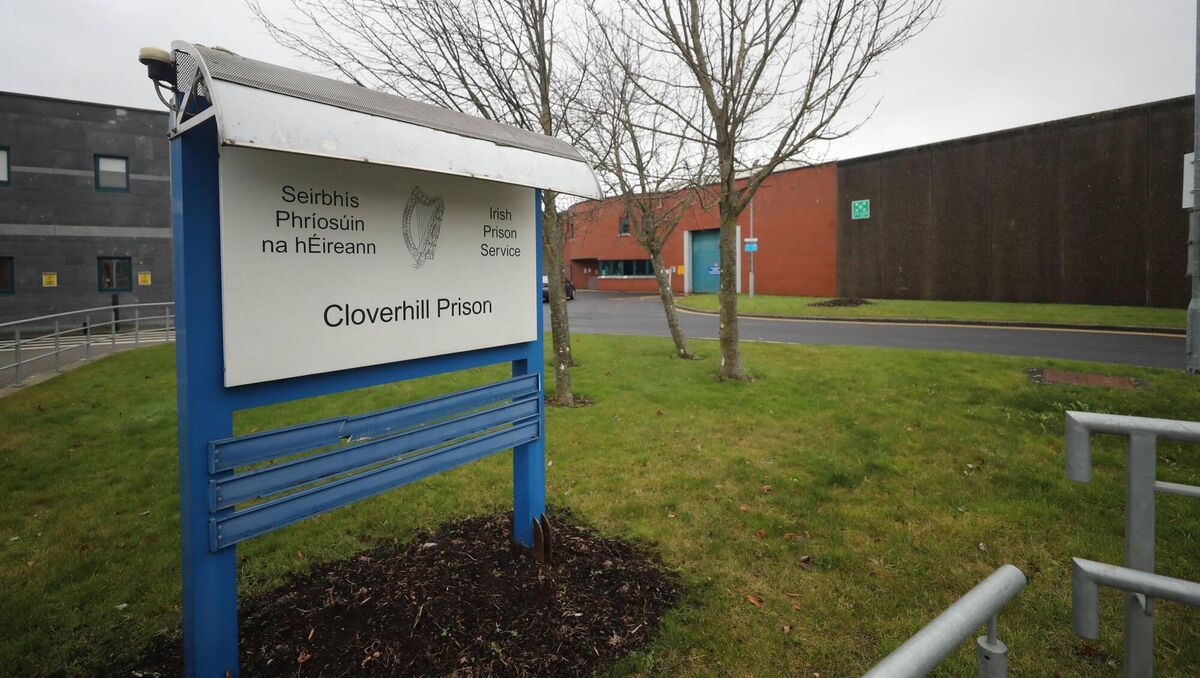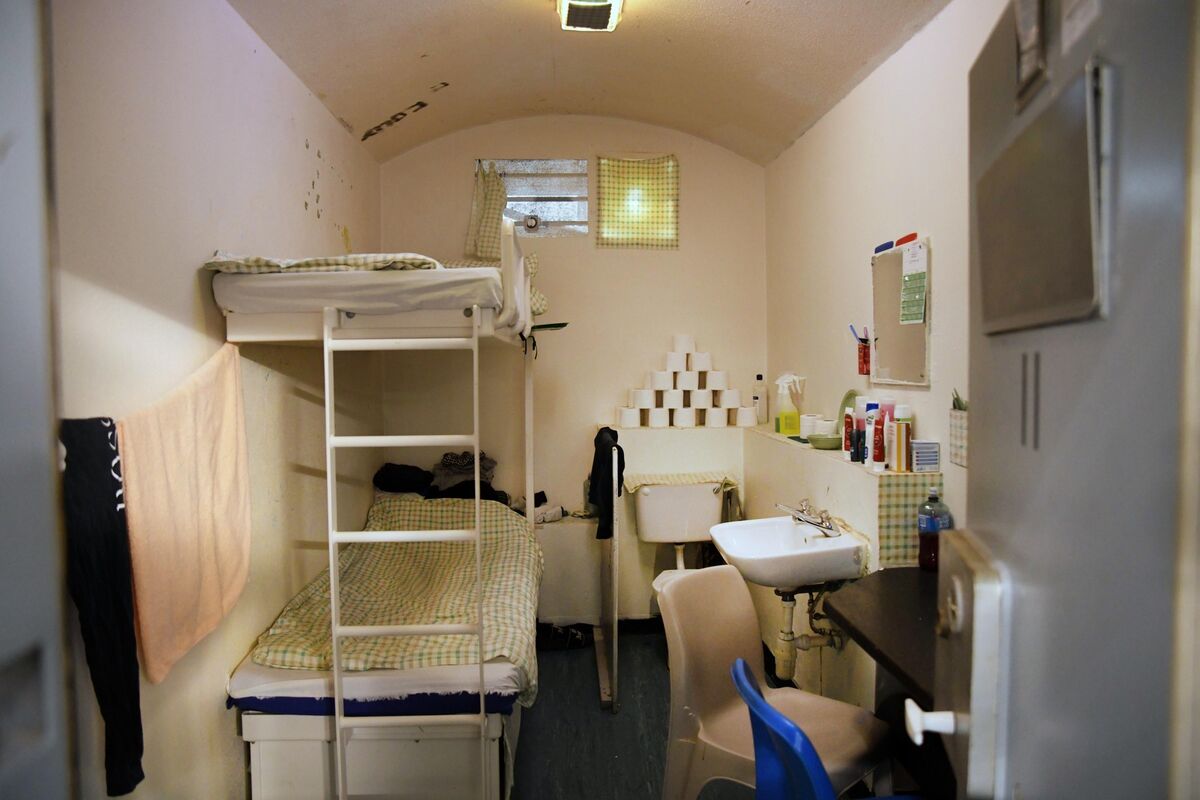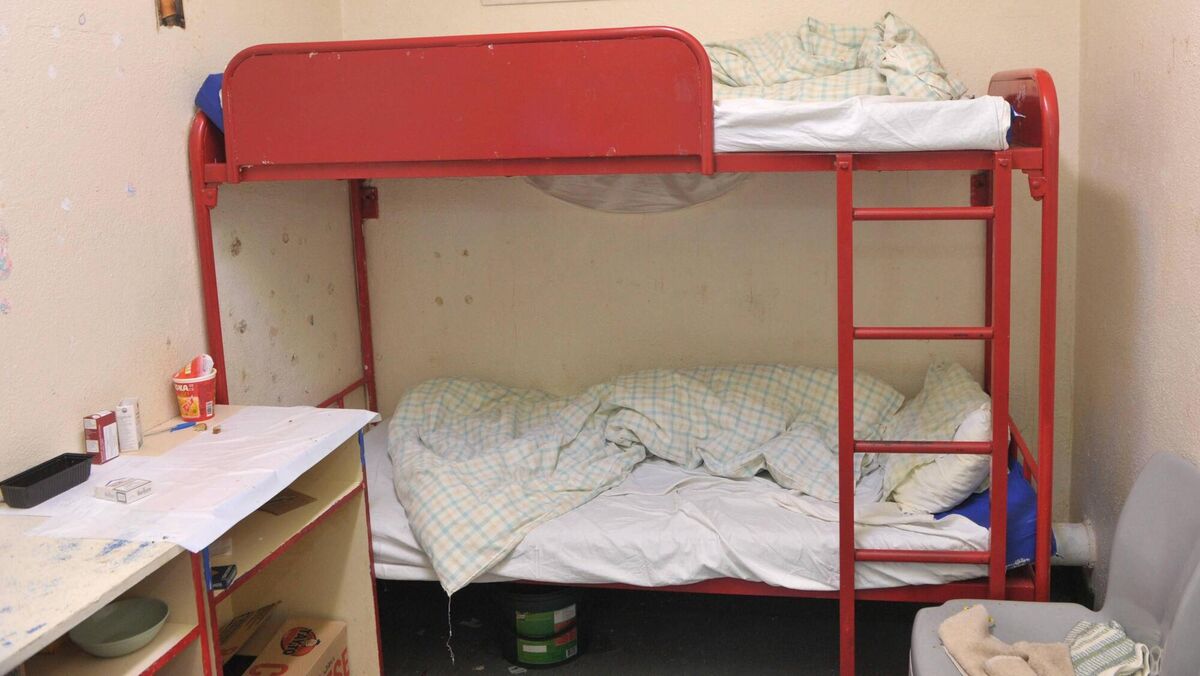Short-sighted attitude to prison overcrowding reflects our country's political cowardice

A cell in Mountjoy Prison with a mattress on the floor to accommodate a second prisoner because of overcrowding. Photo: Moya Nolan
Imagine your home for the foreseeable is a small little room, measuring less than 12 square metres. That’s maybe four meters long, three metres wide.
Imagine you’re a man living there with three other men. There is a toilet in this room that is not partitioned off.
One of the four of you has to sleep on a mattress on the floor every night, which can only be within a foot or so of the toilet, which any of the other three may need to use at any time.
All four of the men eat their meals in this tiny room, off trays, at the same time. And they spend a good chunk of each waking hour confined to the room.
If the four of them were Zen Buddhists, the living conditions would be challenging, if not really difficult.
The Buddhists would at least have recourse to their personal resources, their capacity to mentally negotiate difficult circumstances and accept the physical discomfort as a fact of life. But the men in question are not Buddhists.
They are most likely of low educational attainment, one or two could have a propensity for violence, and there is likely to be other issues informing the immediate problems, such as mental illness and addiction to alcohol or drugs. Imagine the powder keg the room would be?
Imagine the kind of state some of these men would be in when they finally get to leave the room and rejoin society?
That is the reality of prison in Ireland today. The above scenario resembles closely what a recent Inspector of Prisons report recorded in Cloverhill, the west Dublin institution, in 2023.
The situation, the report stated, was “particularly grave”.
“At the outset of the inspection, 152 people, one third of the prison’s population, were being held four to a cell measuring less than 12 square metres, with one occupant sleeping on a mattress on the floor in each of these 38 cells,” the inspector, Mark Kelly, wrote.
“The in-cell lavatories were not partitioned and prisoners were eating breakfast, lunch and dinner in these highly-confined, stuffy, and malodorous spaces."

Violence, the report went on, would be the inevitable result of confining prisoners in “these degrading conditions”.
Overcrowding is now rampant across the Irish prison system. Last Friday, there were 6,034 prisoners in a system that has 4,631 beds.
Limerick Women’s prison was the most overcrowded at 154% capacity. There was a capacity of 135% in Limerick’s male prison. In Cork, one in every five prisoners were without a bed while Mountjoy was at 121% capacity.
Keeping prisoners in these conditions in a country that is among the most developed in the world, where personal rights are held up and protected by a constitution, is deeply inhumane.
A proportion of those locked up – the exact proportion is often disputed – must be incarcerated to reflect the seriousness of their crimes and to protect society.
But even in that context, even allowing for the often violent, sometimes depraved, nature of the crimes for which some are imprisoned, the conditions arguably amount to torture.
There is an illusion in some sections of society that prison can be a bit of a holiday camp. This is completely at odds with the reality of living conditions and conveniently sidesteps that the deprivation of liberty itself is a massive imposition – and correctly so in many cases – on a life.

There are basic standards to which any alleged liberal democracy purports to observe, and by any hallmark, those standards are being completely ignored right now in how people are detained.
The current political environment, however, is such that only offices like the Inspector of Prisons and organisations such as the Irish Penal Reform Trust have any interest in attempting to observe basic rights for a section of society that is easily ignored.
The Inspector’s report, published last month, concluded that the “overcrowding crisis” can only be resolved through “courageous action at political level, such as agreeing to impose an enforceable ceiling on the number of people who can safely be held in each prison".
The political courage referenced would be unprecedented. Instead, any political reference to prisons tends to focus on sounding tough and demanding that ever more people are locked up.
The most recent wheeze in this respect concerns figures that have been published around crime being committed by individuals out on bail.
Sinn Fein TD Matt Carthy received an answer to a Dáil question that suspects in 40,348 crimes carried out in 2024 were on bail.
Mr Carthy did note that many, if not most, of the crimes at issue would be considered relatively minor but suggested that some have been serious, including those which resulted in a loss of life.
“The public will not tolerate a situation where dangerous criminals are repeatedly released on bail to commit further crimes,” Mr Carthy said.
Petrified that Sinn Fein might steal a march on Fine Gael — the self-styled law and order party — its MEP Regina Doherty jumped in to posit that “too many offenders see bail as a revolving door – one that allows them to commit crime after crime with impunity. That has to end.”
The message was clear. Possibly thousands of offenders who were getting bail should instead be locked up on remand. Where they might be shovelled into the system that didn’t receive any attention.
There was no analysis of the figures to determine any instance where a serious crime verifiably committed by an offender on bail should have been foreseen.
There was nothing about the reality that around a fifth of the current prison population are on remand, that an awful lot of people are actually denied bail.
Nothing about the reality that three in every four committals to prison are for less than 12 months and that there needs to be something done “to stem the flow of people on short sentences into our prison system and help more people move on from offending”.

Instead, the political imperative is to sound tough and attempt to surf instinctive emotional reactions to anything about crime by demanding that more people are locked up.
With that level of political cowardice, there is little hope of addressing urgent problems about overcrowding and more long-term issues like finding alternative sanctions for minor crimes in pursuit of a better result for society as a whole.
And ultimately, it is society as a whole which will be the big loser with that kind of short-term, short-sighted attitude.









